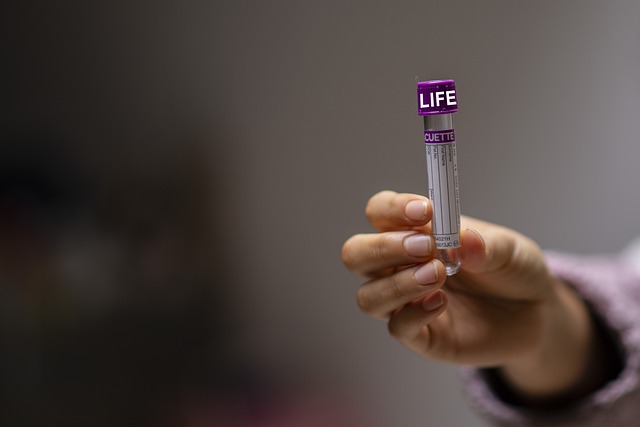Thyroid health is gaining prominence in the UK due to improved healthcare access, emphasizing its vital role in overall well-being. Early detection of thyroid conditions like hypothyroidism and hyperthyroidism is crucial, especially for diabetics. The UK Diabetes Blood Test Kit allows convenient monitoring through standard tests for TSH, T3, and T4 markers. Understanding the kit's components and following proper collection procedures ensures accurate results, aiding healthcare professionals in diagnosing and managing thyroid disorders effectively.
In the UK, thyroid health is paramount as it influences metabolism and overall well-being. The standard thyroid examination kit, akin to a UK diabetes blood test, plays a crucial role in screening and managing thyroid conditions. This comprehensive guide delves into understanding thyroid health, exploring the components of a UK diabetes blood test kit, and providing step-by-step instructions on its proper use and result interpretation.
- Understanding Thyroid Health: Why It Matters in the UK
- Unpacking the UK Diabetes Blood Test Kit for Thyroid Check-ups
- How to Use and Interpret Results from Your Thyroid Examination Kit
Understanding Thyroid Health: Why It Matters in the UK
Thyroid health is a crucial aspect of overall well-being, and its importance cannot be overstated, especially in the UK. The thyroid gland, located at the base of the neck, plays a vital role in regulating metabolism and influencing various bodily functions. It produces hormones that control energy production, body temperature, cholesterol levels, and even reproductive systems. Any disruption in thyroid function can lead to a range of health issues, affecting not just physical but also mental well-being.
In the UK, awareness about thyroid health is on the rise, partly due to increased access to healthcare and initiatives promoting regular check-ups. A standard thyroid examination kit can facilitate this process by providing an easy and convenient way for patients to monitor their thyroid function. Given that conditions like hypothyroidism and hyperthyroidism are not uncommon, particularly in individuals with UK diabetes, a simple blood test can help in early detection and timely treatment. This proactive approach is essential in managing these conditions effectively and preventing potential complications associated with untreated thyroid disorders.
Unpacking the UK Diabetes Blood Test Kit for Thyroid Check-ups
Unpacking a UK Diabetes Blood Test Kit for Thyroid Check-ups involves understanding its components and how to use them effectively. The kit typically includes a blood lancet, a small tube or microtiter plate for blood collection, and a set of test strips specific for thyroid function markers such as TSH (Thyroid Stimulating Hormone), T3, and T4. Each component plays a crucial role in ensuring accurate results.
To begin, carefully read the instructions provided with the kit. The process involves pricking your finger for a small blood sample using the lancet, applying the blood to the test strip, and then waiting for the results to appear as color changes on the strip. This simple procedure allows healthcare professionals to diagnose thyroid conditions or monitor treatment effectiveness, making it an essential tool in UK healthcare for managing thyroid-related issues.
How to Use and Interpret Results from Your Thyroid Examination Kit
Using your thyroid examination kit is straightforward. Follow the instructions provided carefully, ensuring you collect a sample of your blood at the correct time of day (usually in the morning) after fasting for at least 8 hours. Apply the collection device to your finger, allowing a small drop of blood to appear. Typically, the kit will include a test strip or well where you can apply this drop; ensure it makes full contact with the surface to obtain accurate results. Once collected, the sample is ready for analysis.
Interpretation of results depends on the specific test kit used but generally includes measurements of T3, T4, and TSH (Thyroid Stimulating Hormone) levels. Your doctor will compare these against established ranges to determine if your thyroid function is normal, underactive (hypothyroidism), or overactive (hyperthyroidism). Reference ranges can vary slightly between different labs and test manufacturers; therefore, always consult with your healthcare provider for the most accurate interpretation of your results, especially if they fall outside the typical range.
In the pursuit of optimal thyroid health, the UK Diabetes Blood Test kit serves as a powerful tool for early detection and management. By understanding how to interpret results from this examination, individuals can take proactive steps towards maintaining a healthy thyroid, which is essential for overall well-being in the UK. This accessible and convenient method allows for regular monitoring, empowering patients to stay on top of their thyroid function.
